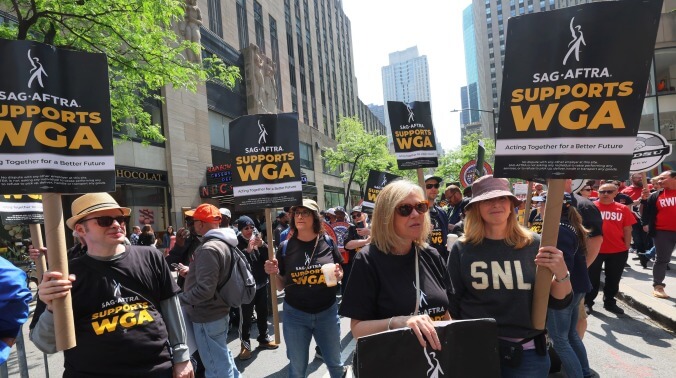The potential SAG-AFTRA strike is very scary for the companies that insure film productions
If movies can't get insurance, movies won't get made

A (perhaps) lesser-known aspect of making a movie is that productions have to pay for insurance that works like every other kind of insurance except it applies to making a movie instead of a car or a house or healthcare. Movies are very expensive, and insurance makes sure the studio or the filmmaker has some protection in the event that someone gets injured, or a camera explodes, or something even more dramatic that makes it impossible to finish the production at all. (Film insurance became a talking point for a bit after the Rust shooting, unsurprisingly.)
Basically, unless the producers are comically wealthy and don’t care about spending money or worryingly cheap and care a lot about spending money, movies—particularly independent movies made outside of the major studios—don’t really get made without insurance. So take it as an especially ominous sign for the future of Hollywood that the companies that normally insure indie movies are so spooked by the potential of a SAG-AFTRA strike that they have reportedly forced at least one project go on hold indefinitely.
